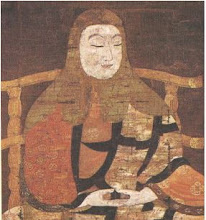What is wanted is
not the will to believe, but the will to find out, which is its exact opposite.― Bertrand Russell, Free Thought
and Official Propaganda
必要とされるのは、信ずる意志でなくて、それと正反対の見つけ出そうとする意欲である。―B.ラッセル「自由思想と官製宣伝」:『懐疑論』(角川文庫)柿村俊訳、p. 168
気になるのはfind outの訳語である。
find out【「(隠された、または知られていない事実を)見つけ出すが本義」】[自](努力の末に)探り出す、気がつく、知る;〔…について調べる〕、情報[真相]を得る〔about〕―ジーニアス英和辞典 第4版(大修館書店)
つまり、ジーニアスは「見つけ出す」という訳語をfind outにあてていないのである。同様にfind outを「見つけ出す」と訳していない熟語集もいくつか存在する。
find out A / find A out Aを知る、Aがわかる―英熟語1001(河合出版)find /…/ out …であると知る―大学入試 受かる英熟語 ソクラテス 1088(学研)find A out (事実など)をつきとめる―システム英熟語(駿台文庫)
英英辞典では、
to get some information about something/somebody by asking, reading, etc―Oxford Advanced Learner’s Dictionaryto get information, after trying to discover it or by chance―Longman Dictionary of Contemporary English
のように定義されているが、これをどう日本語にするか。
大和言葉を用いるとすれば、「知る」ないしは「わかる」ということなのではないだろうか。より具体的には「見破る」とか「見極める」といった訳語を当てることも可能であろう。
find outを別の語に置き換えればlearnやdiscoverである。
to learn or discover (something that you did not know before)―A Dictionary of American IdiomsIf you find something out, you learn something that you did not already know, especially by making a deliberate effort to do so.―Collins Cobuild English Dictionary for Advanced Learners
【試訳】信じようとするのではなく、それとは正反対に、わかろうとすることこそが求められるのである。
なお、標記文の前に ”will-to-believe”(『信じる意志』)の反意語として ”will-to-doubt”(疑う意志)という語が出てくる。
William James used to preach the "will-to-believe.”
For my part, I should wish to preach the “will-to-doubt.” None of our
beliefs is quite true; all have at least a penumbra of vagueness and error. The
methods of increasing the degrees of truth in our beliefs are well-known; they
consist in hearing all sides, trying to ascertain all the relevant facts,
controlling our own bias by discussion with people who have the opposite bias,
and cultivating a readiness to discard any hypothesis which has proved
inadequate. These methods are practiced in science, and have built up the body
of scientific knowledge. Every man of science whose outlook is truly scientific
is ready to admit that what passes for scientific knowledge at the moment is sure
to require correction with the progress of discovery; nevertheless, it is near
enough to the truth to serve for most practical purposes, though not for all.
In science, where alone something approximating to genuine knowledge is to be
found, men’s attitude is tentative and full of doubt.

0 件のコメント:
コメントを投稿